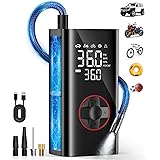The US Food and Drug Administration has approved a new second-generation version of the implanted continuous glucose monitoring (CGM) system Eversense (Senseonics) that lasts for 6 months.
The Eversense E3 CGM system doubles the wear time from 3 months with the previous Eversense device approved in the United States in 2018. As before, the new system is approved for adults with diabetes aged 18 years and older.
This means that it will be the longest lasting CGM system available in the United States, with essentially two sensor insertion and removal procedures per year, the company said.
Data from the pivotal PROMISE trial of the 6-month version were presented at the American Diabetes Association Scientific Sessions in 2021, as reported by Medscape Medical News.
An older 6-month wear time version (Eversense XL) has been available in Europe since 2017. The new second-generation 6-month system is currently under regulatory review there.
The PROMISE trial included 181 participants with diabetes, about two thirds with type 1 and one third with type 2 diabetes, at eight clinical research sites.
“We repeatedly hear from our patients with diabetes that what they desire is a long-lasting sensor that is also highly accurate…The next generation Eversense E3 System delivers on both,” said PROMISE study principal investigator Satish Garg, MD, professor of medicine and director of the adult diabetes program at the Barbara Davis Center, University of Colorado, Aurora, in a company press release.
The Eversense E3 consists of a fluorescence-based sensor, a transmitter, and a smartphone app that displays glucose values, trends, and alerts. The sensor is inserted subcutaneously into the upper arm by a certified healthcare professional in a brief office procedure. The transmitter is placed on the skin on top of the sensor. Glucose data are sent to the app automatically every 5 minutes.
The system includes an on-body vibratory alert as well as alerts on the app for high and low blood glucose values. Eversense readings may be used for treatment decisions, but users still must perform fingerstick glucose checks for calibration.
The regulatory review for the Eversense E3 was delayed for a year due to the COVID-19 pandemic. It will be distributed in the United States through a partnership with Ascensia Diabetes Care beginning in the second quarter of 2022, according to a Senseonics’ statement.
In addition, “The company expects the majority of its expenses for 2022 to be for research and development for ongoing feasibility and pivotal clinical trials for additional products in its product pipeline, including the start of its 365-day pivotal trial.”
Healthcare providers who want to offer the Eversense CGM System to their patients can sign up here or call 844-SENSE4U (844-736-7348).
Patients interested in getting started on Eversense can sign up here and will be among the first to know when Eversense E3 is commercially available.
Miriam E. Tucker is a freelance journalist based in the Washington, DC, area. She is a regular contributor to Medscape, with other work appearing in The Washington Post, NPR’s Shots blog, and Diabetes Forecast magazine. She is on Twitter: @MiriamETucker.
For more diabetes and endocrinology news, follow us on Twitter and Facebook.
Note: This article have been indexed to our site. We do not claim legitimacy, ownership or copyright of any of the content above. To see the article at original source Click Here













